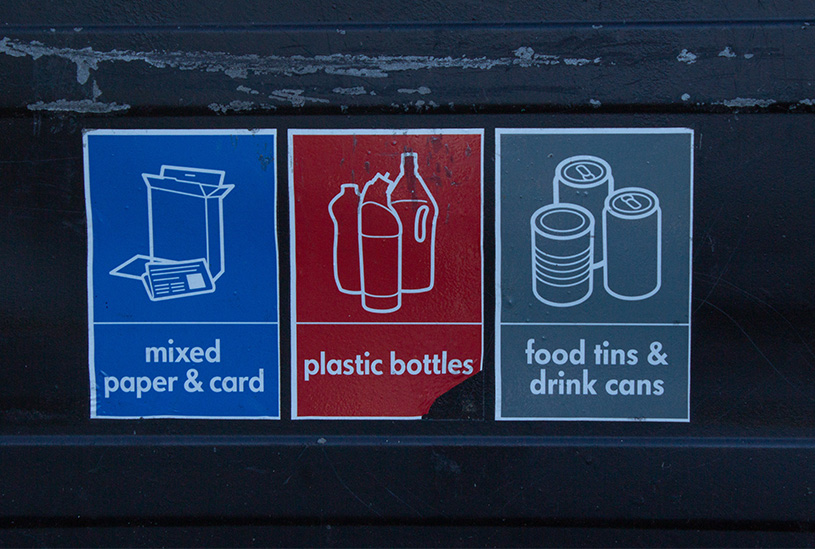New rules will require all businesses in England to separate their recyclable, non-recyclable, and food waste.
Read on for more information on how the new rules will work and which businesses they’ll apply to.
What are the new recycling rules for small businesses?
Businesses will need to separate the following rubbish in line with the arrangements set by their waste collector:
- food waste
- dry recyclable materials (including metal, glass, paper, card, and plastic)
- black bin waste (non-recyclable)
You can agree the size of containers you use and the frequency of your collections with your waste collector.
If you provide bins for your customers, you’ll need to separate the waste they leave for collection in the same way.
When do the new recycling rules come into force?
The new recycling rules will apply to all workplaces (businesses and non-domestic premises) from 31 March 2025.
However, it’s important to note that businesses with less than 10 total employees will be exempt until 31 March 2027.
For example, if your business employs four people in three separate locations, you’d have a total of 12 employees so would need to comply with the recycling rules from March 2025.
Which businesses need to comply with new recycling rules?
The government says any business or workplace in England that generates waste needs to follow the rules.
For example, this includes:
- offices
- retail and wholesale
- hospitality
All business premises used for operation are subject to the rules, which includes areas like staff kitchens.
How do you comply with the new recycling rules?
Depending on your waste collector, you may need to separate paper and card or glass from other dry recyclables.
However, you must always separate dry recyclable waste, food waste, and black bin waste from each other.
Dry recyclable waste includes:
- plastic, such as packaging or empty food containers
- glass, such as drinks bottles or food jars
- card and paper, such as magazines or envelopes
- metal, such as aluminium cans
You’ll often need to rinse plastic or glass dry recyclable waste before it’s separated and collected.
Food waste includes:
- food leftovers
- waste that comes from preparing food, such as eggshells
Black bin (non-recyclable or residual waste) includes:
- contaminated materials like food packaging that can’t be washed
- absorbent products, such as nappies
Your waste collector could be a private company or your local authority. If you work with a private company, they’ll need to be registered on the Public Register of Waste Carriers, Brokers and Dealers.
The full legislation is available on the government website and further guidance and advice from Defra is expected to be published soon.
What happens if you don’t comply?
If you don’t comply with the recycling rules, you could receive a compliance notice from the Environment Agency. If you don’t act on the compliance notice, you could be subject to enforcement action such as a fine.
From April 2025, the public will be able to report businesses that don’t follow the rules to the Environment Agency.
More useful guides for businesses
- Employment Rights Bill – what do small business owners need to know?
- 10 legal changes impacting small businesses in 2025
- What is the national minimum wage 2025? A guide for employers
- Key dates small businesses need to know for 2025
Ready to set up your cover?
As one of the UK’s biggest business insurance providers, we specialise in public liability insurance and protect more trades than anybody else. Why not take a look now and build a quick, tailored quote?
